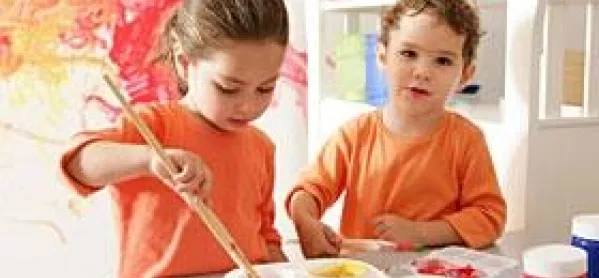The Government lauded the first set of results since the early years foundation stage (EYFS) was introduced in September 2008, saying they show the framework is helping to drive up achievement in early years across the country.
The statistics are based on teachers’ assessments of how children are doing in personal, social and emotional development, communication, language and literacy, problem-solving, reasoning and numeracy, knowledge and understanding of the world and physical and creative development.
The six areas are broken down into 13 scales, and achievements are ranked on a scale of one to nine.
The results show that more girls than boys get to the “good” level of point six in all areas.
This year, 53 per cent of boys could use writing for a variety of purposes compared with 72 per cent of girls.
The area in which most boys and girls reached the good level was dispositions and attitudes and physical development, with 93 per cent of girls and 86 per cent of boys reaching point six in both areas.
But some commentators have called into question the need for such fine detail.
Richard House of the campaign group Open Eye, which wants the EYFS downgraded to guidance, said: “All this constant monitoring and observing and writing reports means parents and practitioners start thinking about children in terms of success or failure.
“As soon as you have that system, parents and practitioners will be comparing their children against some kind of norm, which goes completely against what is claimed by ministers to be a framework all about the unique child.”
The Government has set a national target of 53 per cent of children achieving a total points score of 78, with at least six points in each of the seven scales covering language and personal development by 2011.
This year, 52 per cent of children reached that level.




